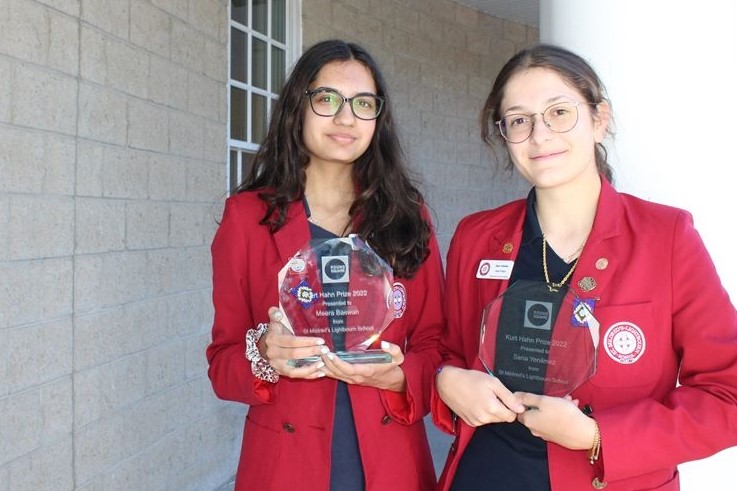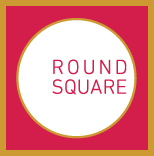Launching this year’s Kurt Hahn Prize as students celebrate Random Acts of Kindness, Courage and Compassion across the Round Square Community
Posted: 17 February 2023

Friday 17th February – Today students across the Round Square community will be marking “Random Acts of Kindness Day” by sharing examples of kindness they have received, and discussing how these made them feel, to inspire one another to do more to make the world a kinder place.
Led by students from Wycliffe College in the UK, today’s global conversation will bring together, on zoom, students from different countries around the world, whose Round Square schools promote community service and active, informed compassion as key components of a well-rounded education. Schools in the Round Square network focus on building a young person’s character as the foundation for academic excellence, and, more broadly, for a meaningful and purposeful life.
“The idea is to develop values and principles, and an outlook on life that seeks always to put back into the world more than we take from it,” says Round Square Chief Executive, Rachael Westgarth. “Random Acts of Kindness are fantastic examples of what can happen when you focus on building character at a foundational level. The acts are spontaneous because they are prompted by an inner sense of right and a desire to make a positive difference in the world, not because someone has instructed or persuaded a person to take action by external influence alone.”
Round Square was founded on the theories of the educationalist Kurt Hahn, who believed that teenagers possess an innate decency and moral sense, but that this is eroded by social pressures as they age. He believed that education could prevent this erosion, if students were given opportunities for personal leadership and to see the positive results of their own selfless actions. As Hahn once said “There are three ways of trying to win the young. There is persuasion, there is compulsion, and there is attraction. You can preach at them: that is a hook without a worm. You can say, ‘you must volunteer’, and that is of the devil. You can tell them, ‘you are needed’. That appeal hardly ever fails.”
It is in this spirit that Round Square presents its annual Kurt Hahn Prize, which is awarded to a student or small group of students in recognition of an exceptional act of selfless service to others – a random act of kindness – and there can be no better time to launch our search for the 2023 Kurt Hahn Prizewinner than today on Random Acts of Kindness Day.
The first Kurt Hahn Prize was donated to Round Square by Altsalemer Vereinigung, an alumnus of Schule Schloss Salem, and a pupil of Hahn’s, in 1967, in appreciation of Hahn’s lifelong contribution to learning. Since then, students from across the globe have been nominated for The Kurt Hahn Prize for their extraordinary deeds of kindness and service to others.
If you would like to nominate a student from a Round Square School for the 2023 Kurt Hahn Prize, please read the rules before making a nomination using THIS FORM before 31st April 2023.
In recent years, award recipients have included Sena and Meera, two grade 11 students from St Mildred’s Lightbourn School in Canada, who co-founded The Indigenous Foundation in 2020, aiming to uplift and amplify indigenous voices and educate others about Indigenous rights. From a small act of kindness their movement now has 63,000+ followers. In 2019 Shreya from Providence Day School in the USA received the award for her “Foundation For Girls” initiative, a youth-led social venture dedicated to empowering girls in crisis, which has now grown into a non-profit movement.
In 2017 the Kurt Hahn Prize has was awarded to Chiara, Jong and Samantha from the British School Jakarta for their community initiative “Indonesia Unfolded”, which championed a project to help restore eyesight for people who are blind due to cataract in underprivileged communities in Indonesia.
Whilst a fundamental principle of random acts of kindness is that they are selfless, it is an undeniable truth that being kind plays a crucial role in our general wellbeing. Research has shown that compassion improves our overall physical and mental health, whether we’re giving, receiving, or even just witnessing an act of kindness.
For example, a study carried out by Christine Carter, UC Berkeley, Greater Good Science Center concluded that kindness can boost your energy levels: Around half the participants reported that they feel stronger and more energetic after helping others. Many also reported feeling calmer and less depressed, with increased feelings of self-worth.
Research also shows that kindness can reduce stress: Consistently kind people have 23% less cortisol (the stress hormone) than the average population. Kindness releases happiness hormones, boosting serotonin, the neurotransmitter responsible for feelings of well-being and satisfaction. Endorphin levels also rise, leading to a phenomenon known as a ‘helper’s high’.
But despite these positive paybacks, researchers from the University of Texas found that people who carry out random acts of kindness significantly underestimate how much their actions affect the recipient – in Kurt Hahn’s words, perhaps we underestimate how much we are needed. This research has provided inspiration for today’s conversation in which students are sharing what kindness means to the recipient. It also illustrates one of the aims of the Kurt Hahn Prize – to raise awareness of the impact of one person’s random act of kindness as a source of inspiration to others.
Over the years, the Kurt Hahn Prize has been awarded for actions and interventions large and small. At one extreme, these have included acts of tremendous courage, in which lives were saved, or significant fundraising efforts that brought about positive change in the lives of many, many people. But at the other extreme we have celebrated quieter initiatives and actions, for example offering tutoring for young people from less advantaged backgrounds, or organising a donation drive to provide for those in need, or organising a friendship network to combat loneliness. In recognising acts of kindness on both large and small scales, the award aims to demonstrate that every small act of kindness is significant – the whole is greater than the sum of the parts.
This is also the idea behind Random Act of Kindness Day – to cultivate feelings of kindness and brighten up someone’s day, whether on a large or small scale. Random Acts of Kindness Day was initiated in 1995 in Colorado by a non-profit organization called The Random Acts Of Kindness Foundation. The event spread to New Zealand nine years later, in 2004, and the observance of the date became more and more widespread.
Its founders speak of the domino effect, that those receiving kindness are encouraged to pay-it-forward. As many of our previous Kurt Hahn Prize recipients have demonstrated, there is also a snowball-effect, when something that starts as a small idea gains momentum, gathers followers, and becomes a movement for positive change.
So here is your challenge for Random Acts of Kindness Day: Put some good into the world, be kind, help someone, pay a compliment, not because you are instructed to, but because you know you are needed. At the very least, your act of kindness will make a positive difference in the life of one other person, and who knows, you may even start your own movement for positive change.
